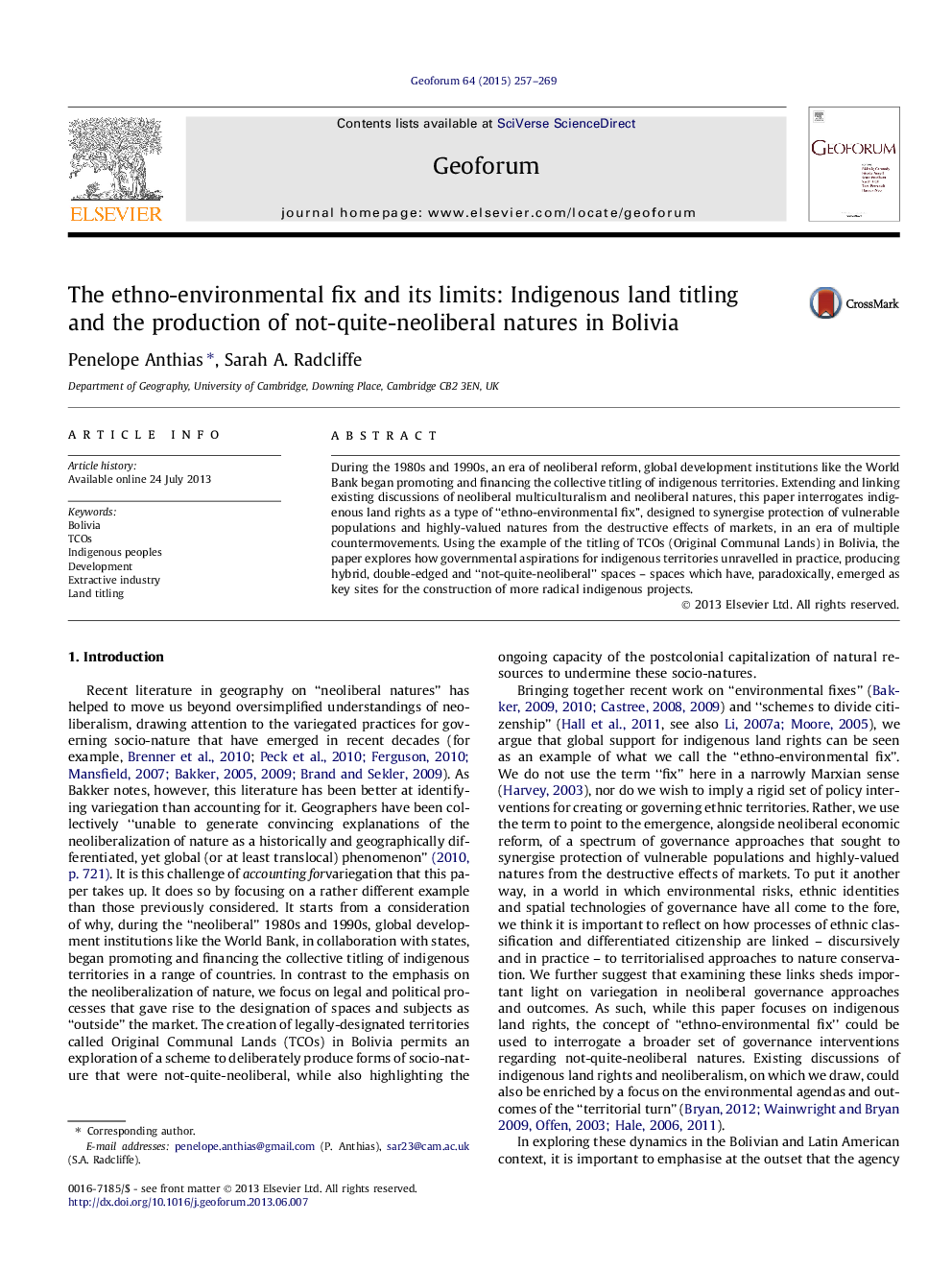| Article ID | Journal | Published Year | Pages | File Type |
|---|---|---|---|---|
| 5073689 | Geoforum | 2015 | 13 Pages |
â¢Neoliberalism involves “schemes to divide citizenship” as well as market instruments.â¢Indigenous land rights are seen to protect vulnerable groups and natures from markets.â¢Bolivia's TCO territories are an example of these collective land rights.â¢TCOs illustrate the characteristics and limits to such an “ethno-environmental fix”.â¢TCOs have emerged as hybrid, not-quite neoliberal and politically-contested spaces.
During the 1980s and 1990s, an era of neoliberal reform, global development institutions like the World Bank began promoting and financing the collective titling of indigenous territories. Extending and linking existing discussions of neoliberal multiculturalism and neoliberal natures, this paper interrogates indigenous land rights as a type of “ethno-environmental fix”, designed to synergise protection of vulnerable populations and highly-valued natures from the destructive effects of markets, in an era of multiple countermovements. Using the example of the titling of TCOs (Original Communal Lands) in Bolivia, the paper explores how governmental aspirations for indigenous territories unravelled in practice, producing hybrid, double-edged and “not-quite-neoliberal” spaces - spaces which have, paradoxically, emerged as key sites for the construction of more radical indigenous projects.
